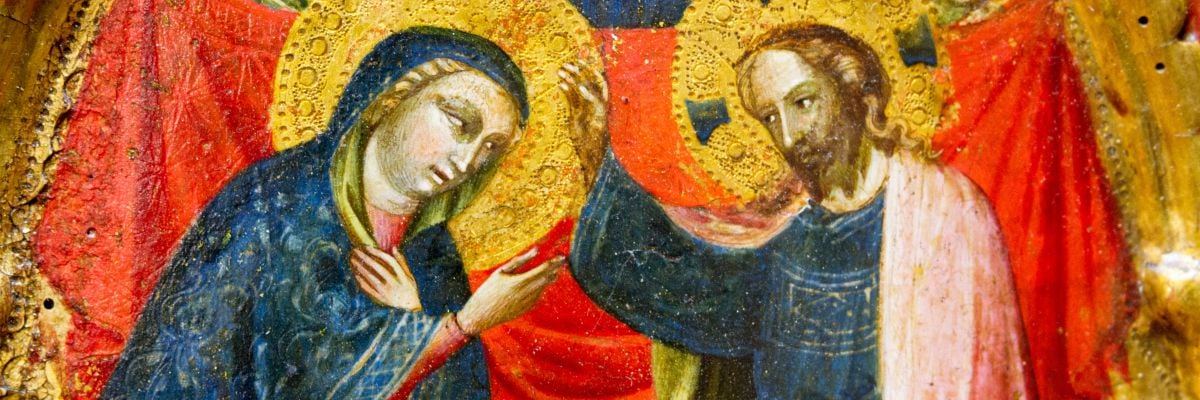
Question:
Answer:
As a divine person, the Son of God who took the name “Jesus” is eternal. But the Son of God took on his humanity in time, when “the Word became flesh” (John 1:14). This is known as the Incarnation (see CCC 461ff). Similarly, the Blessed Mother was created in time and thus assumed into heaven at the conclusion of her life. Jesus and the Blessed Mother will reign in their glorified bodily state in heaven forever, but that wondrous reality doesn’t negate that the Incarnation and the Assumption took place in time.
In addition, in one sense, all history is present to God, who cannot be limited by that which he creates, including time. That is, he doesn’t need to wait for history to unfold to find out what happens in our lives. If that were the case, he wouldn’t be all-powerful (omnipotent). Because he is God, he knows our choices not in a pre-determinative sense, as if we were puppets, but because he is omniscient and thus knows our choices in our choosing them, as only God can.
Regarding appearances of Jesus in the Old Testament, I’m not sure what you mean. The prophet Daniel has a vision of “one like a son of man” (Dan. 7:13-14), and many scholars argue this could be Jesus. If so, this doesn’t mean the Incarnation took place earlier in time. It means that Daniel had the privilege of seeing Christ in his glorified state because, again, God is not limited by time.



